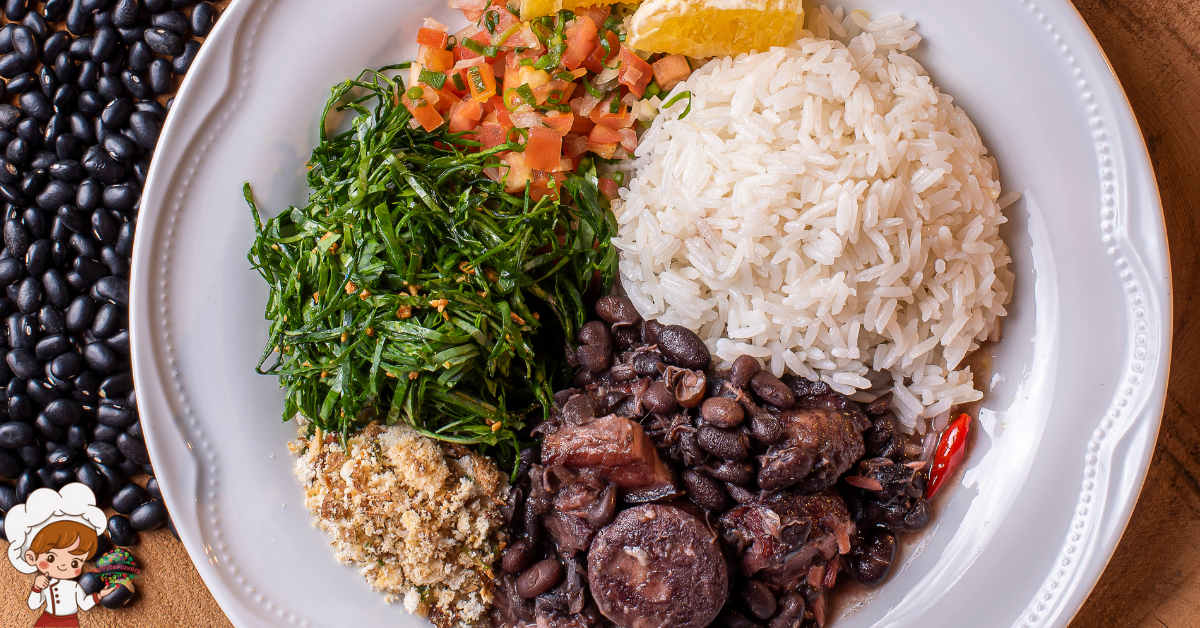The Best Healthy Spanish Mediterranean Diet

The Best Healthy Spanish Mediterranean Diet; Did you know that the Spanish Mediterranean diet is not just about indulging in tapas and paella? There’s so much more to this healthy and nutritious way of eating that you might not be aware of. If you’re curious to learn about the key components of the Spanish Mediterranean diet, the benefits it offers, and how you can incorporate it into your lifestyle, then keep reading. You’ll discover a wealth of information and expert advice that will help you on your journey to a healthier you.
The History of the Spanish Mediterranean Diet
The history of the Spanish Mediterranean Diet is a fascinating journey that showcases the rich culinary traditions and cultural practices of the Mediterranean region. Spanning centuries, this diet has evolved from the ancient civilizations that inhabited the Iberian Peninsula to the present day.
The roots of the Spanish Mediterranean Diet can be traced back to the Phoenicians, Greeks, and Romans who settled in Spain. These civilizations brought with them their unique culinary practices, incorporating local ingredients such as olive oil, fish, grains, and fresh fruits and vegetables. Over time, this fusion of flavors and techniques became the foundation of the Mediterranean diet as we know it today.
The cultural significance of the Spanish Mediterranean Diet cannot be overstated. It is not simply a way of eating but a way of life that reflects the values and traditions of the Mediterranean people. Food is seen as a source of nourishment and pleasure, and meals are often enjoyed with family and friends. The Mediterranean diet also promotes a sense of balance and moderation, emphasizing the consumption of whole, unprocessed foods and limiting the intake of red meat and processed foods.
This diet has stood the test of time and has been recognized by numerous studies for its health benefits. It is associated with a reduced risk of chronic diseases such as heart disease, diabetes, and certain types of cancer. The Spanish Mediterranean Diet is not just about what you eat, but how you eat and live.
Key Components of the Healthy Spanish Mediterranean Diet
To understand the key components of the healthy Spanish Mediterranean Diet, it is important to explore the specific foods and eating patterns that make up this renowned culinary tradition. The Mediterranean diet is characterized by an abundance of fruits, vegetables, whole grains, legumes, and nuts. These plant-based foods provide essential nutrients, fiber, and antioxidants that promote overall health and reduce the risk of chronic diseases such as heart disease, diabetes, and certain types of cancer.
One of the main components of the Spanish Mediterranean Diet is olive oil. Olive oil is rich in monounsaturated fats, which are beneficial for heart health. It is used as the primary source of fat in cooking and as a dressing for salads. Another key component is seafood, especially fatty fish like salmon, sardines, and mackerel. These fish are high in omega-3 fatty acids, which have anti-inflammatory properties and contribute to brain health.
In addition to plant-based foods and seafood, the Spanish Mediterranean Diet includes moderate amounts of dairy products, such as yogurt and cheese. These provide calcium, protein, and probiotics, which support bone health and gut health. Eggs, poultry, and lean meats are also consumed in moderation. Red meat is limited, and processed meats are avoided.
The Spanish Mediterranean Diet emphasizes the use of herbs and spices to flavor dishes, rather than relying on salt. This helps to reduce sodium intake and maintain healthy blood pressure levels. Additionally, moderate consumption of red wine, especially with meals, is a characteristic of this diet. Red wine contains antioxidants, such as resveratrol, which have been associated with heart health benefits.
Benefits of Following the Spanish Mediterranean Diet
Discover the numerous benefits you can experience by incorporating the Spanish Mediterranean Diet into your lifestyle. This diet is not only delicious and enjoyable but also has several advantages for your long-term weight loss and heart health. Here are the top benefits of following the Spanish Mediterranean Diet:
- Promotes Long-Term Weight Loss: The Spanish Mediterranean Diet emphasizes whole, unprocessed foods such as fruits, vegetables, legumes, and lean proteins. These foods are nutrient-dense and low in calories, making it easier to maintain a healthy weight over time. Additionally, the inclusion of olive oil and nuts in the diet can help increase satiety, reducing the likelihood of overeating.
- Protects Heart Health: Research has consistently shown that the Spanish Mediterranean Diet is associated with a reduced risk of heart disease. The diet’s high consumption of fruits, vegetables, whole grains, and olive oil provides essential nutrients and antioxidants that support cardiovascular health. Moreover, the inclusion of fatty fish, such as salmon or sardines, which are rich in omega-3 fatty acids, can help lower cholesterol levels and decrease the risk of heart attacks and strokes.
- Reduces Inflammation: The Spanish Mediterranean Diet is abundant in anti-inflammatory foods, such as tomatoes, leafy greens, and fatty fish. These foods are rich in antioxidants and polyphenols, which have been shown to reduce inflammation in the body. By reducing chronic inflammation, the diet may decrease the risk of chronic diseases, including heart disease, diabetes, and certain types of cancer.
- Improves Blood Sugar Control: With its emphasis on whole grains, legumes, and low-glycemic index foods, the Spanish Mediterranean Diet can help regulate blood sugar levels. This can be particularly beneficial for individuals with diabetes or those at risk of developing the condition. By promoting stable blood sugar levels, the diet can help improve insulin sensitivity and reduce the risk of complications associated with diabetes.
- Enhances Overall Well-being: The Spanish Mediterranean Diet not only provides physical health benefits but also promotes mental well-being. The diet’s emphasis on fresh, natural ingredients and communal eating habits fosters a positive relationship with food and encourages a healthy lifestyle. Additionally, the inclusion of moderate amounts of red wine, enjoyed in moderation, has been associated with a decreased risk of certain chronic diseases and may contribute to overall enjoyment and satisfaction with the diet.
Incorporating the Spanish Mediterranean Diet into your lifestyle can have a profound impact on your long-term weight loss goals and heart health. By following this diet, you can enjoy a variety of delicious foods while reaping the numerous health benefits it offers.
Top Foods to Include in Your Spanish Mediterranean Diet
To follow a Spanish Mediterranean diet, it is important to include key ingredients that are central to this eating pattern. These foods not only provide a rich and varied flavor, but also offer numerous health benefits. By including foods such as olive oil, fish, legumes, fruits, vegetables, whole grains, and nuts in your daily meals, you can create a well-balanced and nutritious diet that promotes heart health, supports weight management, and reduces the risk of chronic diseases.
Key Ingredients for Spanish Mediterranean Diet
Including a variety of nutrient-rich foods in your Spanish Mediterranean diet is essential for promoting health and well-being. To create traditional recipes that are both delicious and nutritious, here are some key ingredients you should include:
- Olive oil: This heart-healthy oil is a staple in the Spanish Mediterranean diet and is rich in monounsaturated fats, antioxidants, and anti-inflammatory properties.
- Fresh fruits and vegetables: Incorporate a wide range of colorful fruits and vegetables for their vitamins, minerals, fiber, and antioxidants.
- Legumes: Beans, lentils, and chickpeas are excellent sources of plant-based protein, fiber, and essential nutrients.
- Whole grains: Opt for whole grain bread, rice, and pasta to increase your fiber intake and promote digestive health.
- Seafood: Include fatty fish like salmon, sardines, and mackerel, which are high in omega-3 fatty acids and provide numerous health benefits.
Benefits of Spanish Mediterranean Diet
The Spanish Mediterranean diet offers numerous health benefits when incorporating the following top foods into your daily meals. One of the main advantages of this diet is its ability to reduce the risk of heart disease. The consumption of olive oil, a staple in the Spanish Mediterranean diet, has been shown to lower cholesterol levels and decrease the risk of cardiovascular problems.
Another benefit is the high intake of fruits and vegetables, which provide essential vitamins, minerals, and antioxidants that support overall health and wellbeing. Including fish in your diet, such as salmon and sardines, provides omega-3 fatty acids that promote brain health and reduce inflammation. Additionally, the consumption of legumes, whole grains, and nuts in this diet can help with weight management and reduce the risk of type 2 diabetes. By adopting the Spanish Mediterranean diet, you can reap these health advantages and improve your overall well-being.
Sample Meal Plan for Spanish Mediterranean Diet
When planning your meals for the Spanish Mediterranean diet, it’s important to focus on incorporating the top foods that will provide you with the maximum health benefits. Here are some meal ideas and grocery shopping tips to help you get started:
- Start your day with a breakfast of whole grain toast topped with fresh tomatoes and olive oil, accompanied by a side of Greek yogurt and a handful of almonds.
- For lunch, enjoy a salad made with mixed greens, grilled chicken, feta cheese, and a drizzle of balsamic vinaigrette. Add a side of whole grain bread to complete the meal.
- Dinner can consist of grilled fish, such as salmon or sardines, served with a side of roasted vegetables and a quinoa pilaf.
- Snack on fresh fruits, like oranges and berries, throughout the day to satisfy your sweet tooth.
- When grocery shopping, prioritize fresh produce, lean proteins, whole grains, and heart-healthy fats like olive oil and nuts.
Sample Meal Plan for a Week on the Spanish Mediterranean Diet
To create a well-rounded and nutritious meal plan while following the Spanish Mediterranean Diet, consider incorporating a variety of fresh fruits, vegetables, whole grains, lean proteins, and healthy fats. Planning your meals in advance can help you stay on track and make healthier choices throughout the week. Here is a sample meal plan to get you started.
For breakfast, you could have a bowl of oatmeal topped with fresh berries and a sprinkle of nuts. This provides a good balance of whole grains, fruits, and healthy fats. Another option is a vegetable omelet made with eggs, spinach, tomatoes, and feta cheese.
Lunchtime can be a great opportunity to enjoy a hearty salad. Start with a base of mixed greens and add some grilled chicken or salmon for protein. Top it off with a variety of colorful vegetables like bell peppers, cucumbers, and olives. Drizzle some olive oil and vinegar for a light and flavorful dressing.
For dinner, try a classic Spanish dish like paella. Use brown rice instead of white rice and add a variety of seafood such as shrimp, mussels, and squid. Include plenty of vegetables like tomatoes, peas, and bell peppers to make it even more nutritious.
When it comes to snacking, choose options like fresh fruit, Greek yogurt with a handful of nuts, or a small portion of hummus with carrot sticks. These snacks provide a good balance of nutrients and keep you satisfied between meals.
When grocery shopping, make sure to stock up on fresh produce, lean meats or fish, whole grains, and healthy fats like olive oil and nuts. Avoid processed foods and sugary drinks as much as possible.
Tips for Incorporating the Spanish Mediterranean Diet Into Your Lifestyle
To successfully incorporate the Spanish Mediterranean Diet into your lifestyle, it is important to make healthy food choices. This diet emphasizes whole foods such as fruits, vegetables, whole grains, legumes, and lean proteins. By choosing these nutrient-rich foods, you can reap the long-term health benefits associated with the Mediterranean diet, including reduced risk of heart disease, improved brain function, and weight management.
Healthy Food Choices
Incorporate the healthy food choices of the Spanish Mediterranean Diet into your lifestyle for a nourishing and delicious way to improve your overall well-being. Here are some tips to help you make healthy food choices and embrace the Mediterranean lifestyle:
- Opt for fresh fruits and vegetables: Fill your plate with a colorful array of vegetables and fruits. They are packed with vitamins, minerals, and antioxidants that promote good health.
- Choose whole grains: Replace refined grains with whole grains like quinoa, brown rice, and whole wheat bread. They are rich in fiber and provide sustained energy.
- Include lean proteins: Incorporate lean proteins like fish, poultry, and legumes into your meals. These are excellent sources of protein and essential nutrients.
- Cook with healthy fats: Use olive oil as your primary cooking oil. It is rich in monounsaturated fats, which are heart-healthy.
- Enjoy nuts and seeds: Snack on a handful of almonds or sprinkle some chia seeds onto your yogurt. These are nutritious and provide a good dose of healthy fats and protein.
Long-Term Health Benefits
Incorporating the Spanish Mediterranean Diet into your lifestyle can provide you with a multitude of long-term health benefits. Research has shown that following this diet can reduce the risk of chronic diseases such as heart disease, stroke, and certain types of cancer. The diet is rich in fruits, vegetables, whole grains, legumes, and healthy fats like olive oil. These foods are packed with nutrients, antioxidants, and fiber, which can help improve digestion, reduce inflammation, and support overall well-being.
Additionally, the diet encourages moderate consumption of lean proteins like fish, poultry, and dairy products, which are important for maintaining muscle mass and bone health. To ensure long-term success, experts recommend making gradual changes to your eating habits, finding ways to incorporate physical activity into your daily routine, and seeking support from a healthcare professional or registered dietitian. By adopting the Spanish Mediterranean Diet, you can enjoy delicious meals while reaping the long-term health benefits it offers.
Common Myths and Misconceptions About the Spanish Mediterranean Diet
Many people mistakenly believe that the Spanish Mediterranean Diet is only about eating lots of olive oil and drinking red wine. While these are indeed important components, there are several common misconceptions and myths surrounding this healthy eating pattern that need to be debunked. Understanding the truth behind these misconceptions can help you adopt a more balanced and informed approach to the Spanish Mediterranean Diet.
Here are some of the most common myths and misconceptions about the Spanish Mediterranean Diet:
- Myth 1: It’s all about olive oil and red wine. While olive oil and red wine are key elements of the Spanish Mediterranean Diet, they are not the only focus. This eating pattern emphasizes a variety of whole foods, including fruits, vegetables, whole grains, legumes, nuts, seeds, and lean proteins like fish and poultry.
- Myth 2: It’s a high-fat diet. While the Spanish Mediterranean Diet does include healthy fats from sources like olive oil, nuts, and fatty fish, it is not a high-fat diet. The emphasis is on consuming moderate amounts of healthy fats, while also incorporating plenty of fruits, vegetables, and whole grains.
- Myth 3: It’s expensive. Contrary to popular belief, the Spanish Mediterranean Diet can be affordable. Instead of focusing on expensive ingredients, this diet emphasizes seasonal and locally sourced foods, which can often be more budget-friendly.
- Myth 4: It’s complicated and time-consuming. Adopting the Spanish Mediterranean Diet doesn’t have to be complicated or time-consuming. With some planning and preparation, you can create simple and delicious meals using fresh, whole ingredients.
- Myth 5: It’s only for people in Mediterranean countries. The Spanish Mediterranean Diet is not limited to people living in Mediterranean countries. Its health benefits can be enjoyed by people all around the world, regardless of their geographical location.
Expert Advice for Long-term Success on the Spanish Mediterranean Diet
For long-term success on the Spanish Mediterranean Diet, experts recommend focusing on incorporating a wide variety of nutrient-rich foods into your daily meals. By following these expert tips, you can achieve sustainable success in maintaining a healthy lifestyle.
- Include plenty of fruits and vegetables: Aim to consume at least five servings of fruits and vegetables each day. These colorful foods provide essential vitamins, minerals, and antioxidants that support overall health and well-being.
- Prioritize whole grains: Choose whole grain bread, pasta, rice, and cereals over refined grains. Whole grains are rich in fiber, which aids in digestion, promotes satiety, and helps regulate blood sugar levels.
- Opt for healthy fats: Incorporate sources of healthy fats into your diet, such as olive oil, nuts, seeds, and fatty fish like salmon. These fats are beneficial for heart health and can help reduce inflammation in the body.
- Embrace lean protein: Include lean sources of protein in your meals, such as poultry, fish, legumes, and tofu. Protein is essential for building and repairing tissues and helps keep you feeling full and satisfied.
- Limit processed foods: Minimize your consumption of processed foods, which are often high in unhealthy fats, added sugars, and sodium. Instead, choose fresh, whole foods as the foundation of your diet.
- Enjoy moderate amounts of red wine: In moderation, red wine can be a part of the Spanish Mediterranean Diet. It contains antioxidants that may have heart-protective benefits. However, it’s important to consume alcohol in moderation and be mindful of your overall calorie intake.
Frequently Asked Questions: The Best Healthy Spanish Mediterranean Diet
Can I Follow the Spanish Mediterranean Diet if I Have Dietary Restrictions or Allergies?
Yes, you can follow the Spanish Mediterranean diet even if you have dietary restrictions or allergies. It offers a variety of foods like fruits, vegetables, whole grains, legumes, and olive oil that can be adapted to suit your needs.
Is It Necessary to Consume Red Wine as Part of the Spanish Mediterranean Diet?
You don’t have to consume red wine as part of the Spanish Mediterranean diet. While some studies suggest health benefits, it’s not necessary. Alternatives like grape juice or berries can provide similar antioxidants.
Can I Still Lose Weight While Following the Spanish Mediterranean Diet?
Yes, you can still lose weight while following the Spanish Mediterranean diet. This eating pattern emphasizes whole foods, lean proteins, and healthy fats, which can aid in weight loss. Its emphasis on long-term adherence promotes sustainable results.
Are There Any Specific Cooking Methods That Should Be Avoided When Preparing Spanish Mediterranean Meals?
When preparing Spanish Mediterranean meals, you should avoid deep-frying and using excessive amounts of oil. Instead, opt for grilling, sautéing, or baking. For dietary restrictions, you can substitute ingredients like olive oil with vegetable broth or lemon juice.
How Does the Spanish Mediterranean Diet Compare to Other Popular Diets in Terms of Health Benefits?
The Spanish Mediterranean diet is known for its health benefits, especially when compared to popular diets like the ketogenic diet. It has been shown to have positive long-term effects on health, making it a practical and evidence-based choice for a healthy lifestyle.
Conclusion
In conclusion, the Spanish Mediterranean diet is a healthy and beneficial way of eating that is rooted in the rich history and culture of Spain. By incorporating key components such as fruits, vegetables, whole grains, legumes, fish, and olive oil, this diet provides numerous health benefits. With a wide variety of delicious foods to choose from, following the Spanish Mediterranean diet can be both enjoyable and sustainable for long-term success in maintaining a healthy lifestyle.








